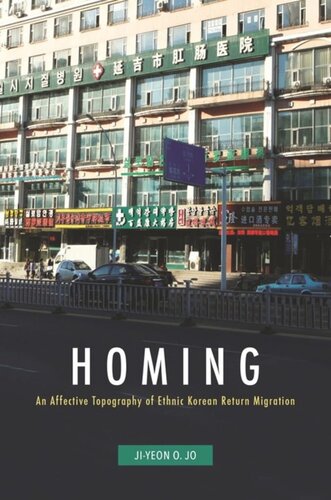

Most ebook files are in PDF format, so you can easily read them using various software such as Foxit Reader or directly on the Google Chrome browser.
Some ebook files are released by publishers in other formats such as .awz, .mobi, .epub, .fb2, etc. You may need to install specific software to read these formats on mobile/PC, such as Calibre.
Please read the tutorial at this link: https://ebookbell.com/faq
We offer FREE conversion to the popular formats you request; however, this may take some time. Therefore, right after payment, please email us, and we will try to provide the service as quickly as possible.
For some exceptional file formats or broken links (if any), please refrain from opening any disputes. Instead, email us first, and we will try to assist within a maximum of 6 hours.
EbookBell Team

4.0
76 reviewsMillions of ethnic Koreans have been driven from the Korean Peninsula over the course of the region’s modern history. Emigration was often the personal choice of migrants hoping to escape economic and political hardship, but it was also enforced or encouraged by governmental relocation and migration projects in both colonial and postcolonial times. The turning point in South Korea’s overall migration trajectory occurred in the late 1980s and early 1990s, when the nation’s increased economic prosperity and global visibility, along with shifting geopolitical relationships between the First World and Second World, precipitated a migration flow to South Korea. Since the early 1990s, South Korea’s foreign-resident population has soared more than 3,000 percent.
Homing investigates the experiences of legacy migrants—later-generation diaspora Koreans who “return” to South Korea—from China, the Commonwealth of Independent States, and the United States. Unlike their parents or grandparents, they have no firsthand experience of their ancestral homeland. They inherited an imagined homeland through memories, stories, pictures, and traditions passed down by family and community, or through images disseminated by the media. When diaspora Koreans migrate to South Korea, they confront far more than a new living situation: they must navigate their own shifting emotions as their expectations for their new homeland—and its expectations of them—confront reality. Everyday experiences and social encounters—whether welcoming or humiliating—all contribute to their sense of belonging in the South.
Homing addresses some of the most vexing and pressing issues of contemporary transnational migration—citizenship, cultural belonging, language, and family relationships—and highlights their affective dimensions. Using accounts gleaned through interviews, author Ji-Yeon Jo situates migrant experiences within the historical context of each diaspora. Her book is the first to analyze comparatively the migration experiences of ethnic Koreans from three diverse diaspora, whose presence in South Korea and ongoing relationships with diaspora homelands have challenged and destabilized existing understandings of Korean peoplehood.